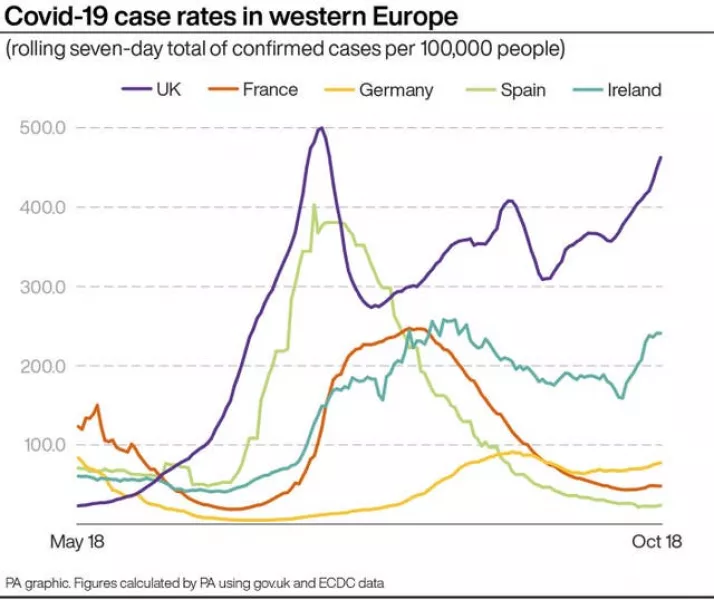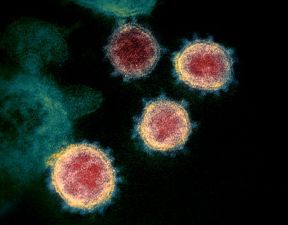The British government is keeping a “close eye” on a descendant of the coronavirus Delta variant that is being seen in a growing number of cases.
Downing Street said it was monitoring the AY4.2 variant, but insisted there was no evidence it spreads more easily.
The British prime minister’s official spokesman said: “It’s something we’re keeping a very close eye on.
“There’s no evidence to suggest that this variant … the AY4.2 one … is more easily spread.
“There’s no evidence for that, but as you would expect we’re monitoring it closely and won’t hesitate to take action if necessary.”

Scientists say AY4.2 carries two characteristic mutations in the spike, Y145H and A222V, both of which have been found in various other coronavirus lineages since the beginning of the pandemic.
However, they have remained at low frequency until now.
The first strains carrying both mutations were sequenced in April 2020, and either are found in any variant of concern.
Francois Balloux, professor of computational systems biology at University College London and director of the UCL Genetics Institute, said: “The A222V was found in the B.1.177 lineage that swept Europe in the summer of 2020, but careful follow-up analyses pointed to the lineage likely having no inherent transmissibility advantage and that its spread was most likely caused by demographic processes.”
He added that neither mutation was an obvious candidate for increased transmissibility, but that mutations can have different, sometimes unexpected, effects in different strains.
Prof Balloux explained: “As AY.4.2 is still at fairly low frequency, a 10 per cent increase in its transmissibility could have caused only a small number of additional cases.
“As such it hasn’t been driving the recent increase in case numbers in the UK.”
He said the emergence of another more transmissible strain would be “suboptimal”, adding: “This is not a situation comparable to the emergence of Alpha and Delta that were far more transmissible (50 per cent or more) than any strain in circulation at the time.
“Here we are dealing with a potential small increase in transmissibility that would not have a comparable impact on the pandemic.”

AY4.2 is rare outside the UK, and there have been only three cases detected in the US so far.
In Denmark, the other country that, besides the UK, has excellent genomic surveillance in place, it reached a 2 per cent frequency but has gone down since.
Work is under way to test whether it may be less well recognised by antibodies.







